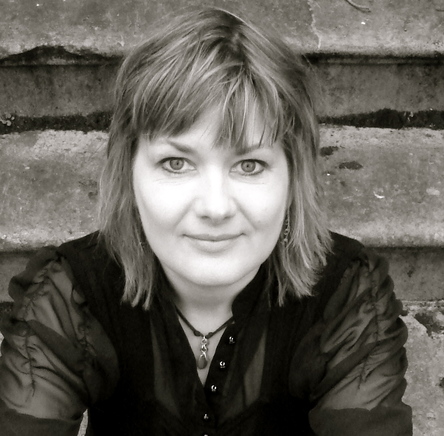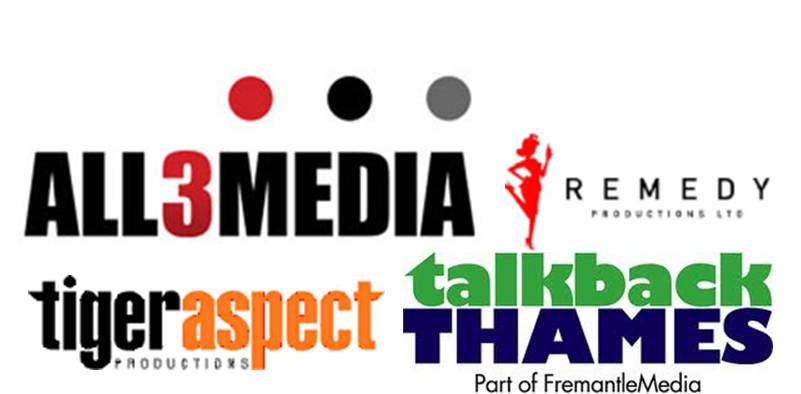One of our most popular blogs of last year was the’ Scene Profiles’ with Nicola Lees an experienced TV development producer and the founder of www.tvmole.com, an invaluable resource for anyone trying to develop and pitch their factual TV ideas. She's the author of Greenlit: Developing Factual / Reality TV Ideas From Concept to Pitch and Give Me the Money and I'll Shoot! Finance Your Factual TV/Film Project, which is an accessible entry-level guide to navigating the complex world of TV and documentary finance. In 'Give Me the Money', ten different sources of funding are illustrated with international case studies featuring a made-for-television Belgian bobsled team, octogenarian ping-pong players and a mega-sperm race through the Canadian Rockies. Also, candid interviews with industry insiders – from award-winning filmmakers to entertainment lawyers, financiers and expert freeloaders – reveal the various benefits and pitfalls and provide top tips for anyone who wants to find the best way to fund their factual TV programme or independent documentary. The book includes sample proposals suitable for various types of funder including broadcasters, brands and film foundations. On top of TV Mole and being an author, Nicola also runs a mentoring scheme for Women in Film and Television.
I receive numerous emails from people who have ideas for programmes so Nicola is back for another Scene Profiles piece – this time to give more of an insight and some valuable advice about the pitching process. For those of you who have ideas but are unsure of what to do with them, this is a must read!
What should you do if you think you’ve got a great TV idea? Who should you approach, what format should it be in?
If you think you have a good idea for a TV programme, you first need to develop it so that it is more than just a subject or area of interest and write a one-page proposal. A good, commissionable, programme proposal has the following elements:
- Title
- Number of episodes and duration of the film/episodes (usually expressed as ‘6 x 60', for example)
- A one paragraph synopsis of the idea
- An outline of the story that will unfold
- An introduction to the key characters and/or list of episodes
- A description of the filming techniques that will be used: observational documentary, studio-based, in front of an audience, archive or CGI, for example
- Your contact details.
If your idea involves new on-screen talent, is character-based or dependent on access, you should also shoot a short taster tape (2-3 minutes). In the first instance it doesn't need to be too slick or costly (I recently saw a great taster that cost just £5.50), but it does need to prove that your talent can present, your characters are compelling or that you do really have access to all the areas you claim.
Once you've got your pitch materials together, you can think about who to approach. It's very hard to get a meeting at a channel if you are unknown to them. You can get around this by pitching your idea to a production company first. Established production companies have long-standing relationships with commissioners at the various channels and their involvement is reassuring to the broadcasters.
It's important that you pitch your idea to the right kind of production company – it's pointless pitching your documentary idea to a drama production company, or your archive based history programme to a production company that specializes in structured reality programming. Research other programmes like yours and find out which company made them – they are likely to be open to similar ideas and already have a proven track record in making the kind of programme you are pitching. The Pact Directory has a searchable list of UK production companies, searchable by region / genre / production activity. Once you've shortlisted a number of companies, check their websites to see if they are happy to receive ideas from people outside the company and find out what their submission process is. If there's no information listed on the website, find out the name of the head of development and send a brief, professional email with a general overview of your idea. For example, "I have an idea for a 3-part music series for BBC 4 that is based on previously unseen archive" gives them enough information to know whether they might be interested without giving away your idea. If they are interested, they are likely to invite you in for a meeting to discuss the idea further.
Typically, how do programme ideas get selected to be broadcast?
Commissioning editors are always looking for new ideas, but they receive very few that they want to commission. It's said that big production companies expect only one in ten of the ideas they pitch to be commissioned. A commissioning editor recently told me that he commissioned approximately one idea for every 150 proposals he received. Each channel works to its own brief and is looking for ideas that fit with the channel's brand – they aren't going to commission an idea just because you think it's a great idea, it has to fit with their overall brand strategy.
Broadly, the elements that make an idea attractive are:
- A never-told-before story, or new angle on a familiar story
- Tie-ins to big anniversaries (but these are sometimes commissioned years in advance)
- Celebrity involvement (particularly important for ITV) or new onscreen talent who might be developed to become the 'face' of a channel (important for digital channels e.g. Cherry Healey on BBC3)
- An episode format that works for the channel's schedule. There are few slots available for one off documentaries; big landmark series on BBC1 tend to be 6 x 60'; a daytime schedule might demand 45 x 30' episodes
- A budget that is in line with what the channel can afford to spend (or a plan for where you are going to get the rest of the money)
- Alignment with a production company with a proven track record in making the type of programme being pitched
If an idea is picked up by a production company or broadcaster, does the idea creator receive any financial benefits?
People often think that they can come up with an idea and just sell it; this is not the case. Production companies have more ideas generated in-house than they can deal with so they don't need to spend money 'buying in’ ideas. A good idea can be ruined by poor execution, so commissioning editors want to buy ideas from people who are passionate about, and have a proven track record in, producing successful shows.
The money you will make from a commissioned idea can range from nothing (likely) to thousands of pounds (less likely), depending on the level of your involvement. The more closely connected you are to your idea, the more expertise you bring to the subject, the more research and development you've done – the better position you'll be in to negotiate.
The production company will retain approximately 10% of the overall budget as their production fee. So for a £120,000 budget they might expect to keep £12,000 as payment for making the programme (however, if the production runs over budget they will have to dip into this kitty and the amount they get to keep as a fee will decrease). In this situation, you are negotiating for a percentage of this £12,000 – which might be anything from say, 10% (£1,200) to 50% (£6,000). However, as the production company is providing all the production expertise and support (and may well have invested money in developing your idea to a stage where is it is commissionable), and they are also taking the risk if there is an overrun of the schedule (and therefore the budget), they will negotiate as big a percentage as possible otherwise it isn't worth the risk.
Instead of trying to get an upfront payment, most people prefer to negotiate a paid place on the production team (and the production company is likely to be more amenable to this), which over the course of six months can add up to tens of thousands of pounds and you also get a that all important credit for your CV. If you are negotiating a role on production, make sure that you are being reasonable – you won't be able to direct a six part series if your most recent job was as a runner (no matter how many films you made at university); however, getting your own idea commissioned can be a good way to make the step up from experienced assistant producer to producer or shooting assistant producer to director.
Finally, how long does it usually take to get to air? What happens after it airs – any more financial benefits from this?
From conception of idea to transmission, it can take weeks or years. The length of time it takes to get to air depends on how long it takes to pitch the idea – Matt Damon spent ten years trying to get his documentary series 'The People Speak' (History Channel, USA) off the ground); how quickly the channel makes a decision – (the BBC promises to get back to people within 20 weeks); and how long the production schedule is – Channel 4's Hippo Live transmitted three weeks after commission because they already had the location and carcass (which was to be filmed being eaten by predators), however, many big natural history series are commissioned 3-5 years before transmission because they usually take a long time to film.
Beyond the production fee, money can be made from format sales (to international producers or broadcasters who might want to make a local version of the show), acquisitions (sales of the finished show 'as is' to international broadcasters), DVD and theatrical rights and ancillary merchandising such as books, games and toys based on the programme. However, the commissioning broadcaster might insist on buying these rights as part of their original deal with the production company, or the production company might retain these rights as part of the deal they do with you at the beginning of your relationship. Otherwise you could negotiate the right to receive an agreed percentage of future sales in a certain format e.g. DVD, soundtrack; or territory e.g. English-speaking, North America, European etc (if indeed there are any).
The only way to ensure that you retain all rights in your production and can therefore benefit from any sales is to fund your film yourself (or via film funds and foundations that don't expect to take a stake in your film), which ensures that you aren't giving away any of your rights in return for money from broadcasters or other funders. This is a model that Franny Armstrong has pioneered with 'The Age of Stupid' (she shares a lot of useful information on her website www.spannerfilms.net). However, it's important to note that very few documentaries go on to make any money.
As with anything to do with rights and contracts, there are no set answers – everything is negotiable and decided on a on a case by case basis so you should seek professional advice from a business affairs consultant who can advise you regarding your particular situation and they can carry out the negotiation on your behalf (some examples are listed in the right sidebar of www.tvmole.com under 'Business Affairs and Contracts)
—END—
A huge thanks to Nicola for taking part in the Scene Profiles series – truly great, practical advice that is not always easy to come by. For more information, tips and opportunities related to development, pitching and commissioning, be sure to visit TV Mole.
You can also follow Nicola on Twitter @tvmole
For regular news, updates and opportunities, follow us on Twitter at @Scene_TV and 'Like' the Facebook page: www.facebook.com/SceneTV




